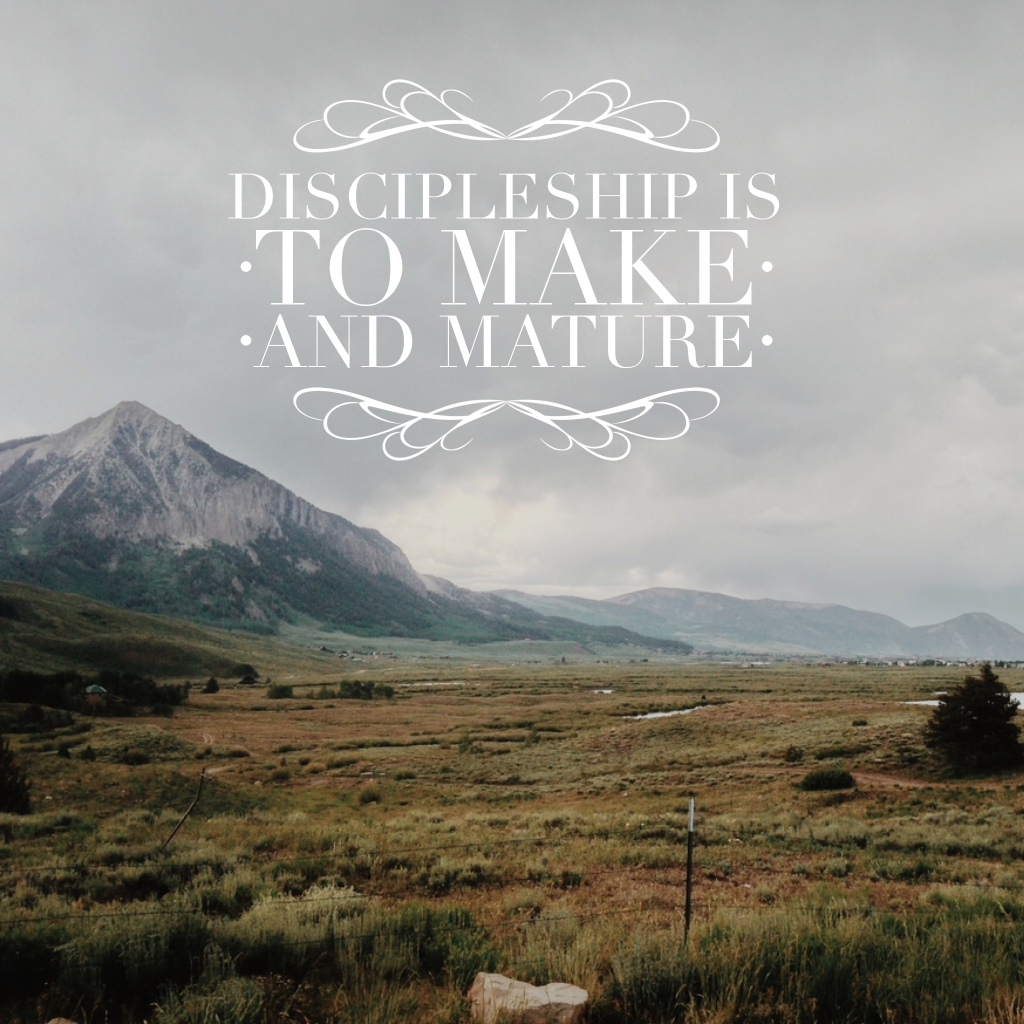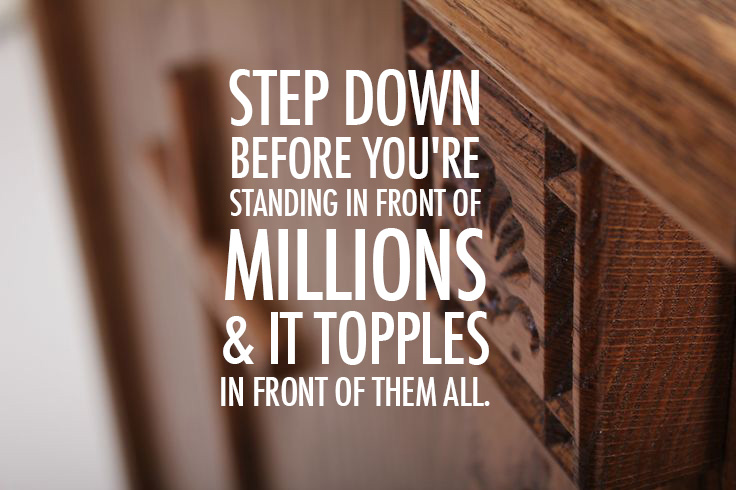To Make and Mature
Today is her first day of school. Orientation, really, but I have learned to count the small blessings. She crawled into my bed last night and we talked about everything until I was falling asleep and she was too giddy to sleep. "Thank you for bearing with me," she said. And of course it's okay, I said, it's my joy, but what I was thinking was how long the paths to life are and how very thorny along the way. This morning I woke up to make her breakfast, toast and eggs, runny like she likes them, and I thought of the person who made me go to college orientation a dozen years ago. I was a wounded bird in those years and the thought of a classroom frightened and intimidated me, but at her urging I went. I was out of place, older than all my classmates, wildly unprepared for the liberal atmosphere, and I thrived. I sent her a message this morning: thank you for making me go to school, for sticking with me.
. . .
Some friends and I talked late last night about discipleship and long-sufferingness. The long road is, as I said, thorny along the way and we are too often softened by psychology and words like "healthy boundaries" and "my time." To disciple is to make and to mature, but it often seems a far more glorious thing to make than to mature. We grow lazy and pass people off, as if they were the baton we pass instead of the message we ought to be passing.
This morning I think about how Jesus grew in wisdom and stature, and how desperately we all long for that. But he did it at home, in his father's house, sweeping the sawdust, listening to his mother, caring for his siblings, learning to craft furniture and construct buildings, learning Torah. He did it for years and years and years and years and years, in faithful discipleship from those around him. And others did it with him—even those who knew his true nature as Messiah.
Haven't we grown weary though? In doing good? Doesn't our good so often seem to fall on deaf or dumb or fear-filled ears? How long, oh Lord, until we see wisdom and stature from train-wrecked marriages and wayward children and unrepentant friends and, God, my own heart? How long?
Love is long-suffering, though, suffering long. The way is thorny and marked with setbacks plenty. We will administer correction or challenge or wisdom, or walk so long with someone through darkness it feels like the end is never coming.
. . .
I sit with someone yesterday and talk about how a seed can't grow to maturity if we keep digging it up and replanting it. It has to bed itself deep in the dark earth, it needs the musky darkness to break open and grow, and then it needs light and water and time to grow into maturity and we cannot rush that process—no matter how difficult it is to stay, to be long-suffering, to enter in, to do the difficult work of people.
We need stayers in the kingdom, those who will do the difficult work of discipleship, who walk with the weak as they grow in wisdom and stature, in spiritual things and physical things, in intangible ways and tangible ways. Long-suffering makers and maturers.






